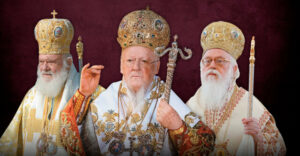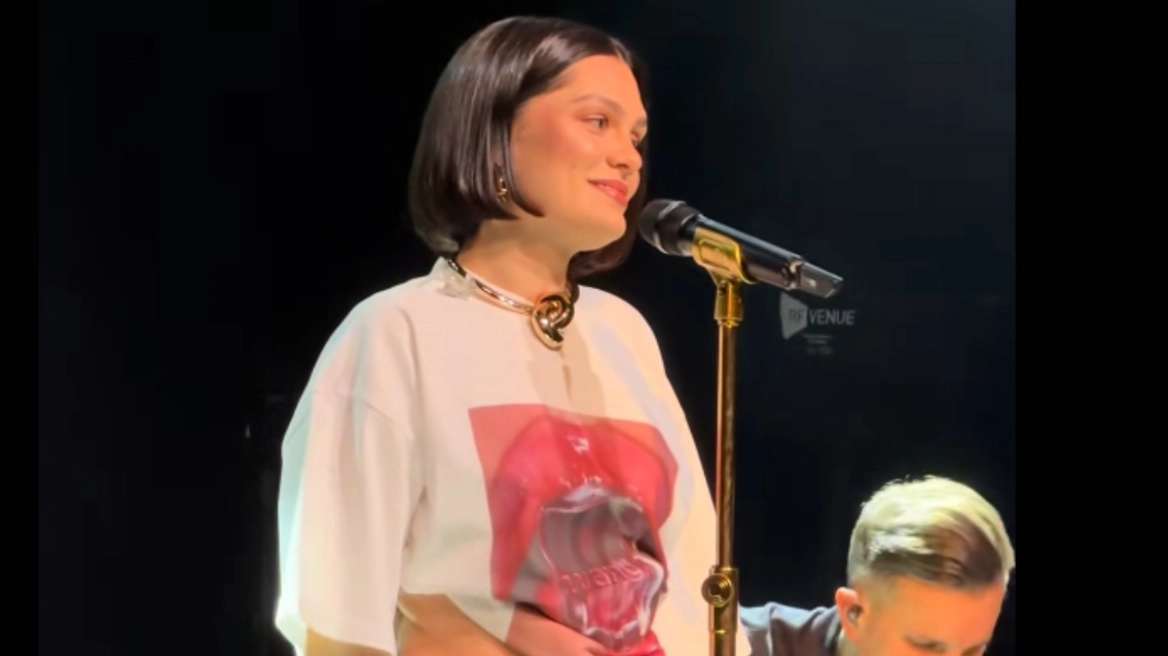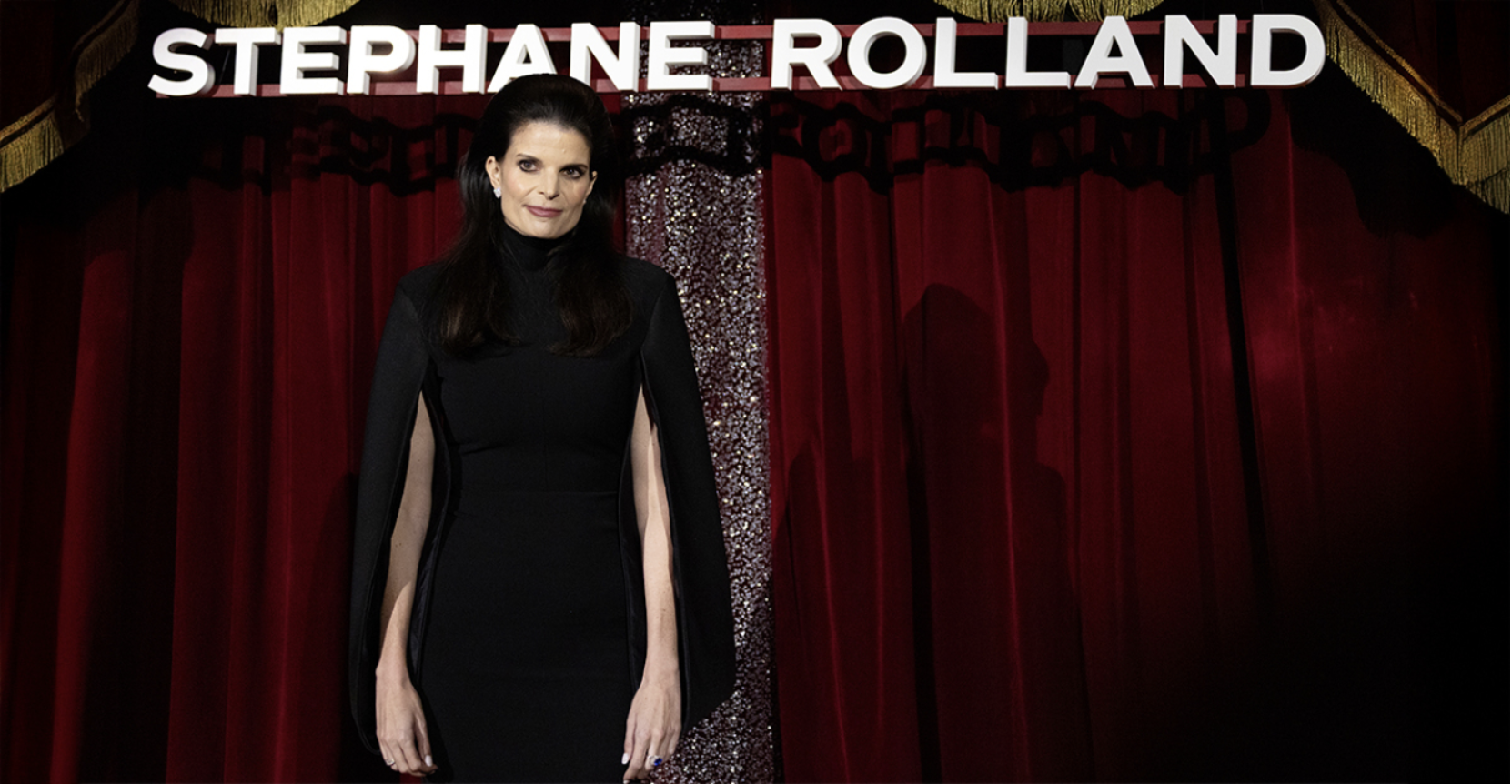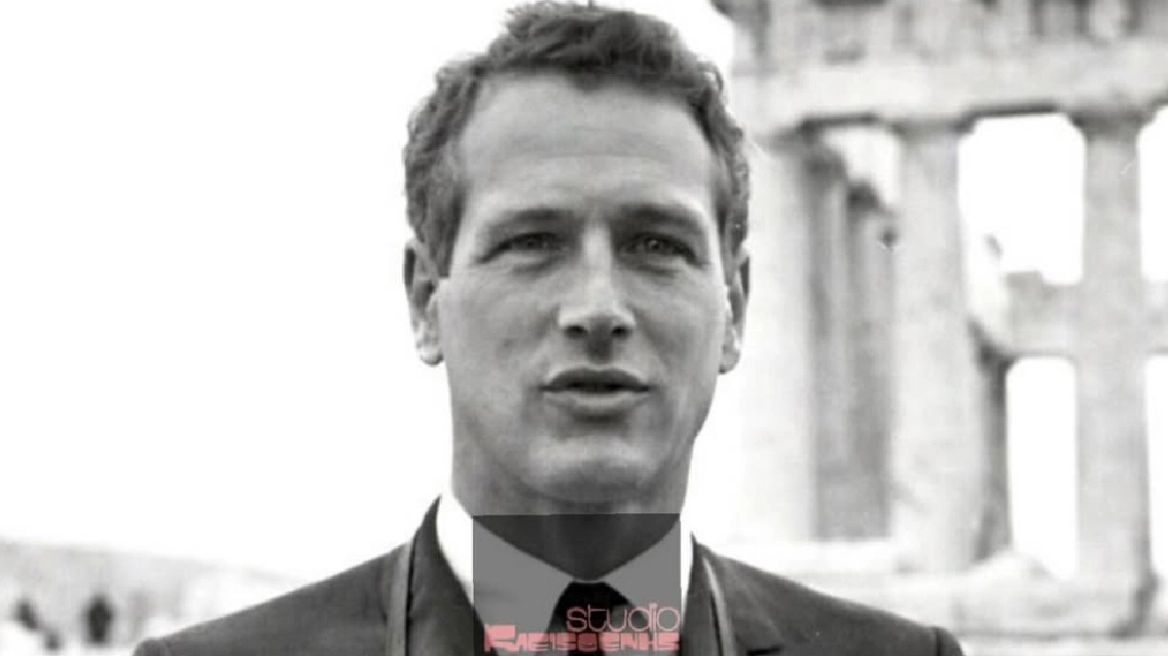A silent “Game of Thrones”, without public manifestations, visible only to systematic observers, is taking shape in the Orthodox Church. Which is intensifying behind the heavy curtains of metropolitan offices given that three leaders of the Church, Archbishop Ieronymos, Ecumenical Patriarch Bartholomew and Archbishop Anastasios of Albania, have passed their 85th birthday. All three are in good health, have mental clarity and insiders note that they are putting themselves as pawns on the chessboard. And the ecclesiastical “game of thrones” may be being set up, but time is the dominant parameter for its real start and evolution.
It was 2019 when the now 86-year-old Archbishop of Athens and All Greece, Ieronymos, was indirectly, but publicly, expressing his thoughts of stepping down from the archbishop’s throne. At the time, his entourage and many of the dozens of metropolitans and bishops who have been elected during his tenure were quick to rule out this option, telling him “of course, Despot”. Simply put, that the end of his term of office should be equated with the end of his life.
About a year and a half later, when the Archbishop was admitted to “Evangelism” having been diagnosed with COVID-19, prior to his vaccination, the Church and the hierarchs held their breath. However, almost simultaneously the chessboard was set up in a special “Game of Thrones”, with the potential candidates showing intentions, counting allies and opponents, and all under the gaze of Archbishop Ieronymos himself, who enjoys excellent health, mental and physical, if one excludes some mobility problems. Observers, moreover, see him moving players and changing the course of the game.
The Church, point out people who know its workings and mechanisms well, is a surviving organism because it is always ready for the next day. In this logic that makes sure to be ready even for the unpredictable tomorrow, faces and alliances are being singled out and formed within the hierarchy. Eighty-one people are the ones who will decide the next day of the Church of Greece, as many as the members of the Holy Synod of the Hierarchy (except the Archbishop).
The timing and manner of succession are key factors in shaping the game for the archbishop’s throne in the Church of Greece. If everything happens after the next three to five years, younger prelates, who are now in the third line of reserve, come into the game; they are the ones who are called “persons for the day after tomorrow”. If the succession unfolds with Archbishop Ieronymos’ prior departure (which is not in any way apparent today), he is expected to play an important role, since he influences a large number of hierarchs. During his term, moreover, the map of the hierarchy of the Church of Greece has been significantly renewed, as 46 new metropolitans have been elected.
Experience so far has shown that in an archbishop’s election in the Church of Greece, customarily, prelates younger than 55 years old do not enter the race, preparing for the next similar process. Archbishop Ieronymos himself, as Metropolitan of Thebes and Levadea, first claimed the throne at the age of 60 in 1998. At that time, he was defeated in the third vote by 59-year-old Metropolitan Christodoulos of Demetrias, whom he succeeded ten years later.
The candidates
In this logic of preparing a Church that does not take itself by surprise, two prelates, who have passed the informal bar of 55, have long been at the forefront of potential candidates for the next day, and two others, according to Church sources, are following. One, who until a few months ago most observers of church happenings described as a “favorite” for the next day, is 71-year-old Metropolitan Dorotheos of Syros, Tinos and Mykonos. Although he has not been weakened in any way at the level of allies, it is nevertheless acknowledged that the case of same-sex marriage has affected the climate in the ranks of the hierarchs as well.
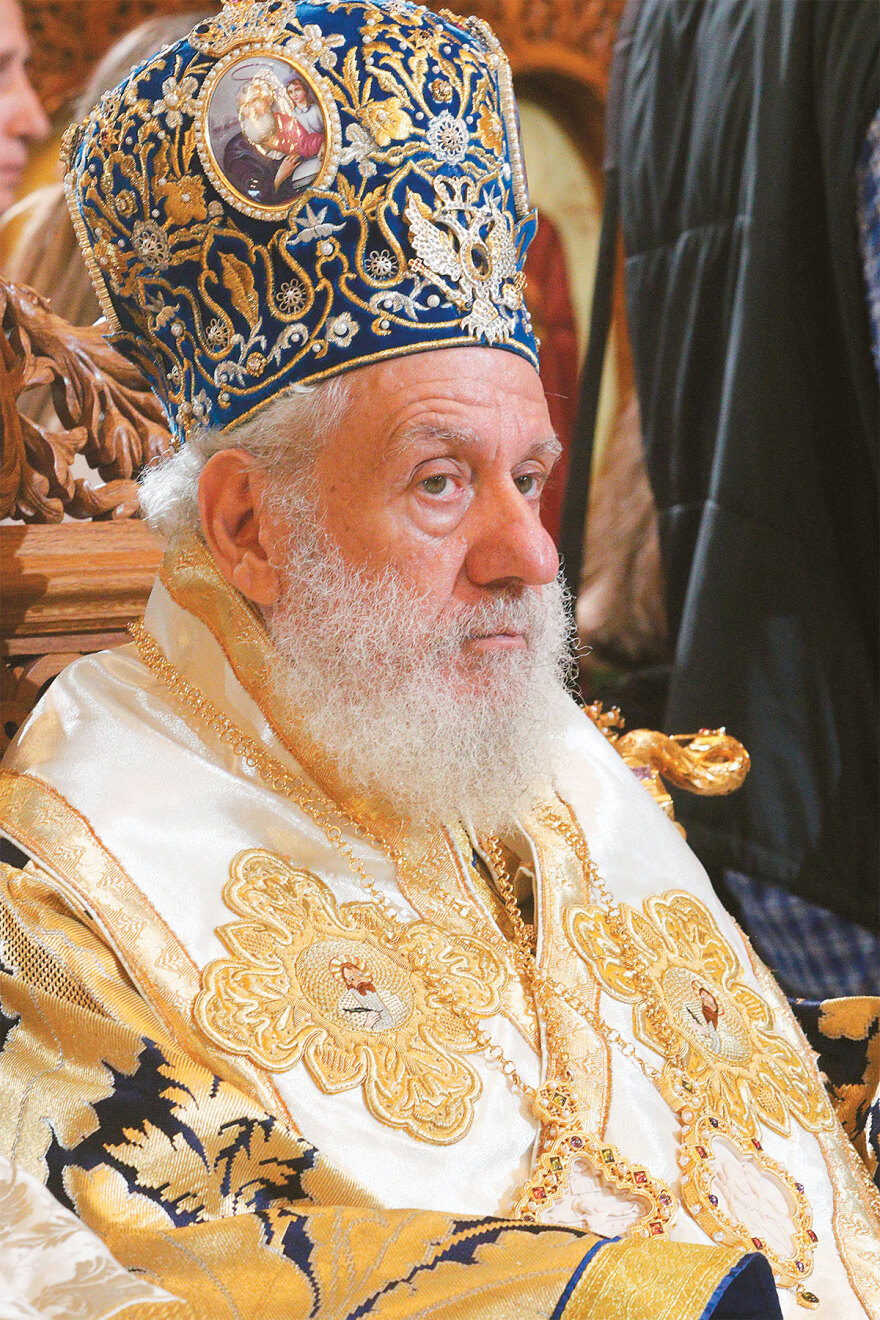
Dorotheos, already low-key and particularly careful in his public statements, had taken a more moderate stance, which for many prelates was interpreted as “pro-government”. Besides, he is said to have excellent relations with the Prime Minister’s entourage. His stance was not substantially different from that of Archbishop Ieronymos, in a logic of bridging the gap between church rules and the absolute right of the state to legislate.
At that very time, however, the other powerful hierarch in a succession scenario, 63-year-old Metropolitan Chrysostomos of Messinia, was the one who took a tougher stance against government plans and ultimately the legislation of same-sex marriage. Elected Metropolitan of Messinia at the age of 46, he was one of the youngest in the hierarchy at the time and is one of the last, if not the last, hierarch elected under Blessed Christodoulos. Particularly beloved in the ranks of his students at the Theological School of Athens, he showed early on that he would aspire to a wider role in the ranks of the Church of Greece.
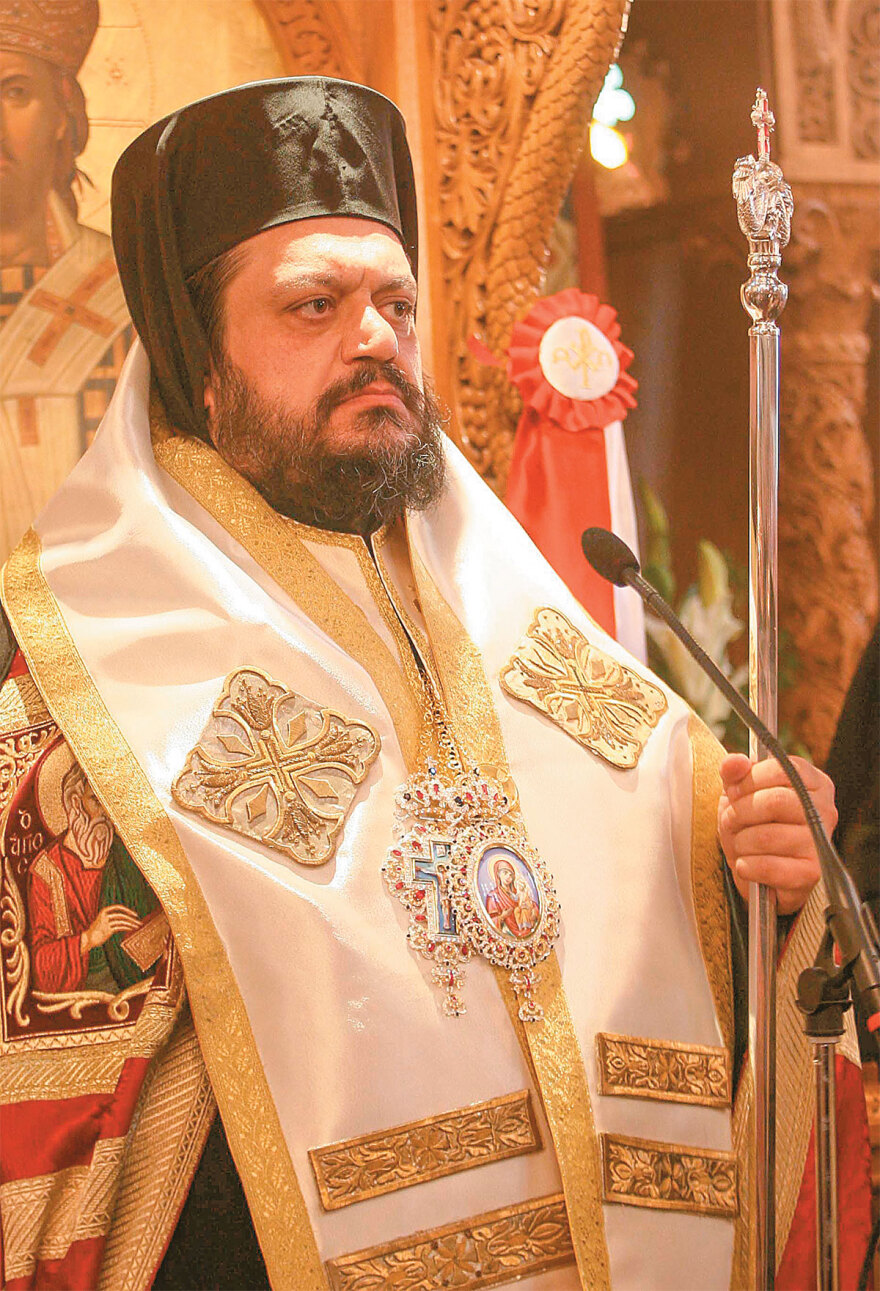
He is said to have excellent relations with Antonis Samaras and there are more than a few who claim that the former prime minister had favoured his election. After all, in Messinia, Samaras has had a say over time. Mr Chrysostomos’ stance on the issue of same-sex marriage favoured him, as a more conservative part of the hierarchy heard what the head of the Church was not saying at the time. In a way, however, which is not unusual in ecclesiastical events, what the Metropolitan of Messinia was saying brought “balance” to the Church’s ship and calmed down reactions of metropolitans who even supported “populism”, which Archbishop Hieronymos practically prevented with his attitude.
Chrysostomos had argued that the law would blow up the core of the Greek family and had appeared laudatory on the issue of childbearing. “When the family is taken for granted to be mother and father, what parental role model will a child who grows up in a same-sex environment have? Not only in the definition and functionality of his biological sex, but also in terms of his behavior. It is not a normal evolution and development of that child,” he had said.
In the Church that is not surprised, however, time is a determining factor. After all, how can one assess whether the prelates who will be called upon to vote will then remember what stance each candidate had taken on an issue that was indeed important to the Church.
But two other people are entering the succession scenarios, and not at the same time. Some church circles place in the position of the “third pole”, after Syros Dorotheos and Chrysostomos of Messinia, Chrysostomos of Chalcis, and some others place Chrysostomos of Patras (three prelates with the same name in the same frame).
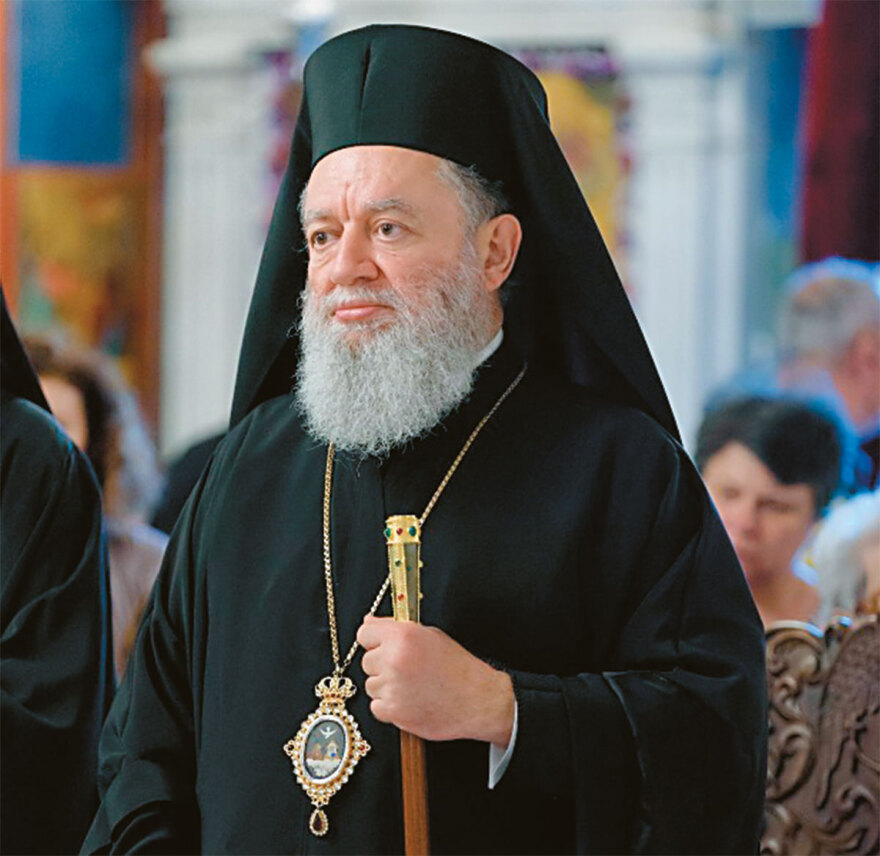
The 67-year-old Metropolitan of Chalkis is considered a person closer to Archbishop Ieronymos, more “unifying” and may, according to some, be a choice. However, other excellent experts in ecclesiastical anthropogeography attribute the same characteristics to 66-year-old Chrysostomos of Patras. The same sources, placing the faces on the chessboard, speak of the persons of the hierarchy who can influence things with their attitude.
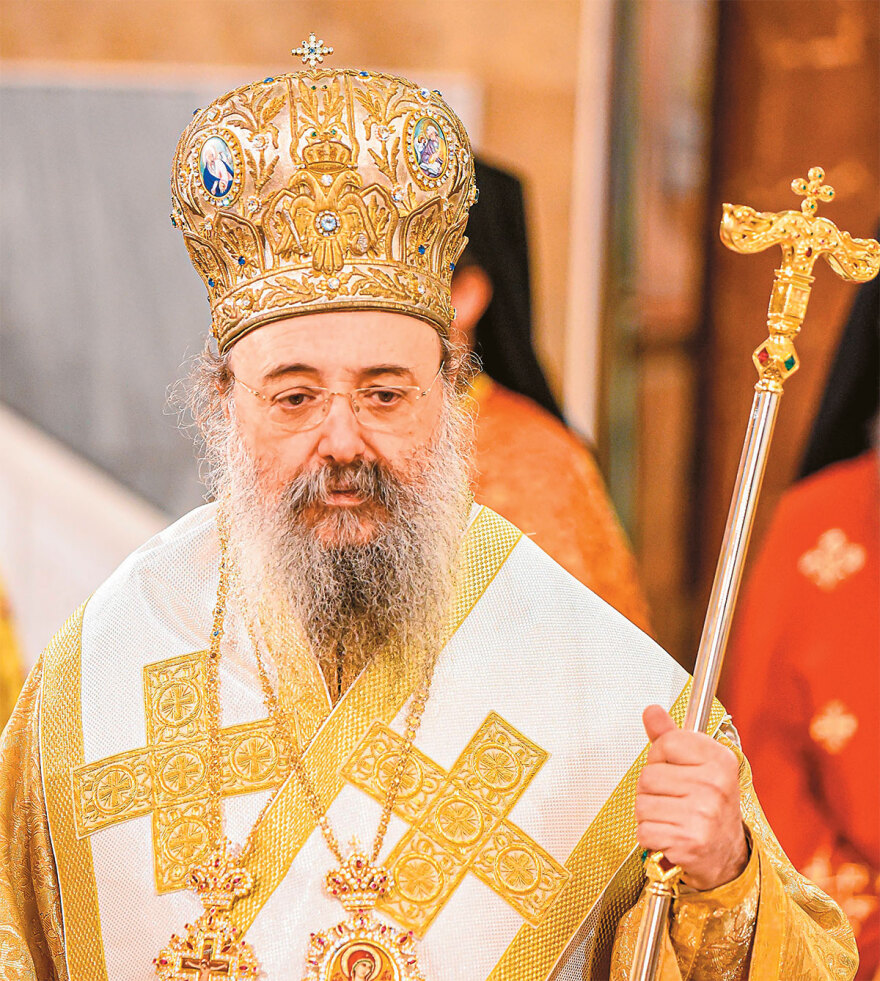
Thus, a group of elder hierarchs who are close in age to Archbishop Ieronymos stand out, led by his runner-up in the 2008 archbishop election, Metropolitan Efstathios of Sparta and Monemvasia. The 86-year-old prelate has been at the helm of his diocese since 1980 and his word still carries weight in the hierarchy. In the same category of elders, church sources include Panteleimon of Xanthi, Ephraim of Hydra and Ierotheos of Nafpaktos.
Powerful players
Time and circumstances at the crucial time, however, could bring other players into the game, church officials say. Depending on the circumstances, prelates such as Ignatius of Demetrias and Nicholas of Messogaia may play or claim a leading role in the next day of the Church of Greece. But time may also bring into play metropolitans who are now under the informal bar of 55 years of age and are characterized by many as parts not of “tomorrow” but of “the day after tomorrow” of the Church.
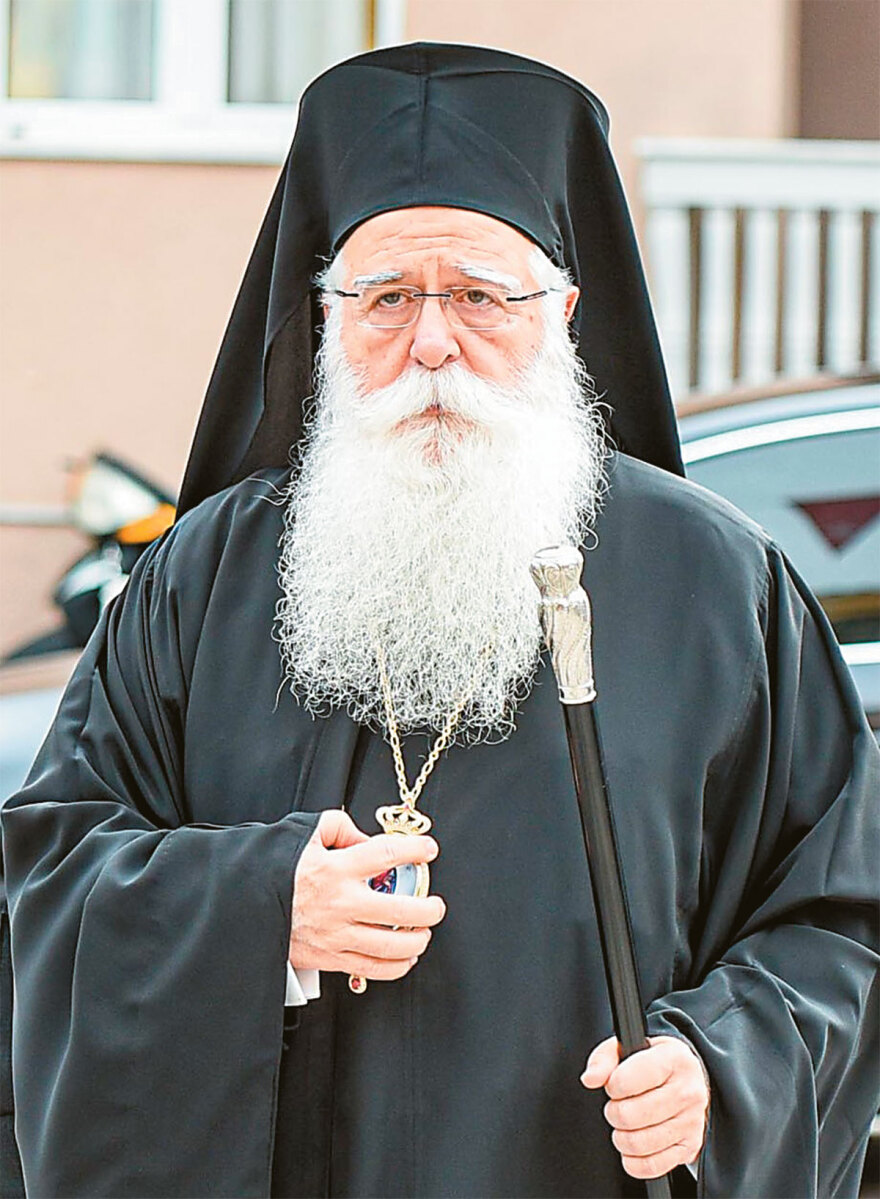
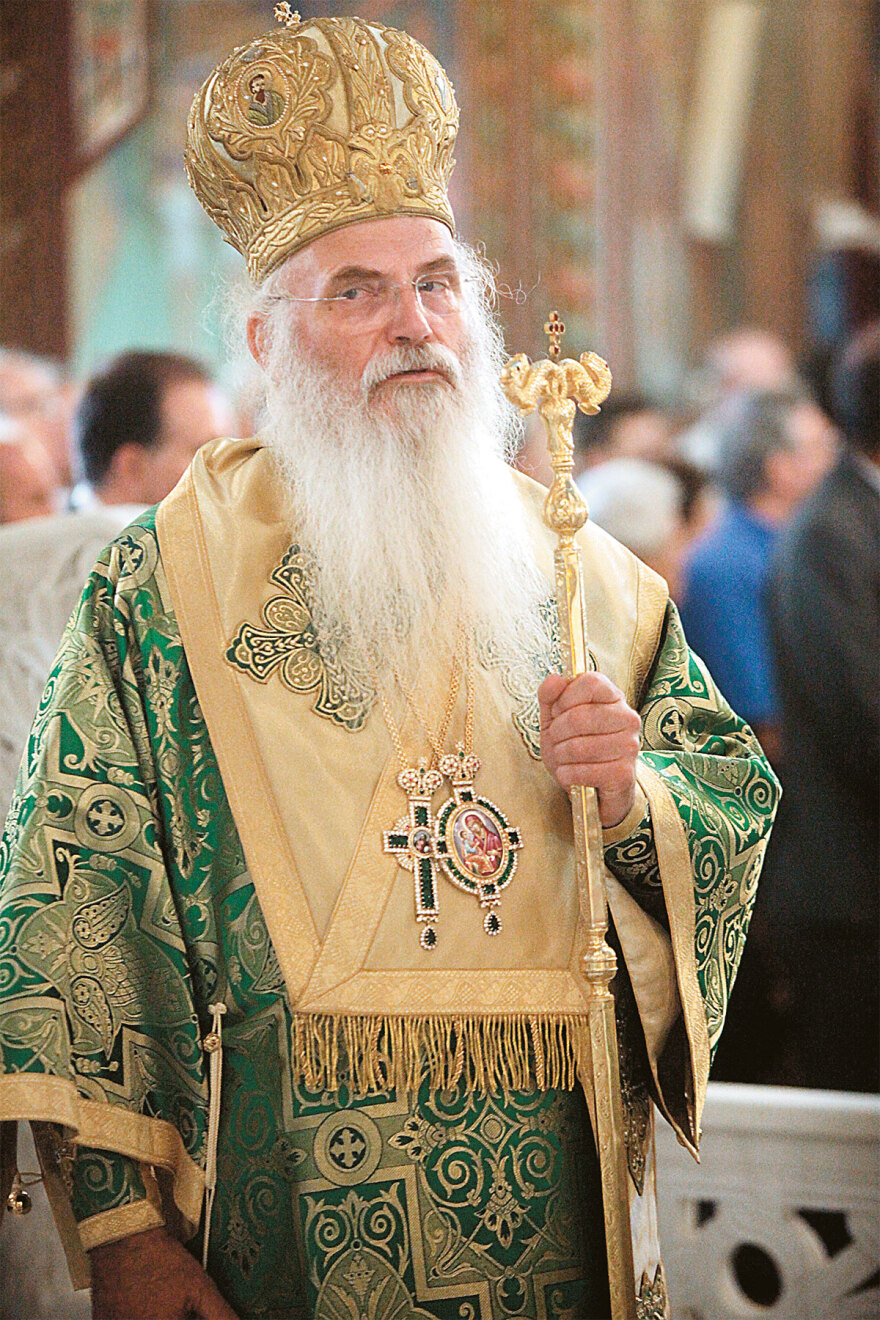
Three metropolitans are being placed in this cycle of the ecclesiastical “Game of Thrones” and as time goes on, they, representing the new generation of the Church, are joining the potential succession. “If the change of baton in the Church takes too long, then everyone is playing,” commented a systematic observer of events.
The younger trio includes Metropolitan Gabriel of New Ionia and Philadelphia, Simeon of Fthiotis and the youngest of the three, Philotheos of Thessaloniki. All three, in different roles, have served close to Archbishop Ieronymos and are considered to have influence and leadership qualities, though they differ significantly from each other. Close to this trio, more than a few are placing Larissa’s Ieronymos – even estimating that his chances may in time come to be as strong as those of Fthiotis.
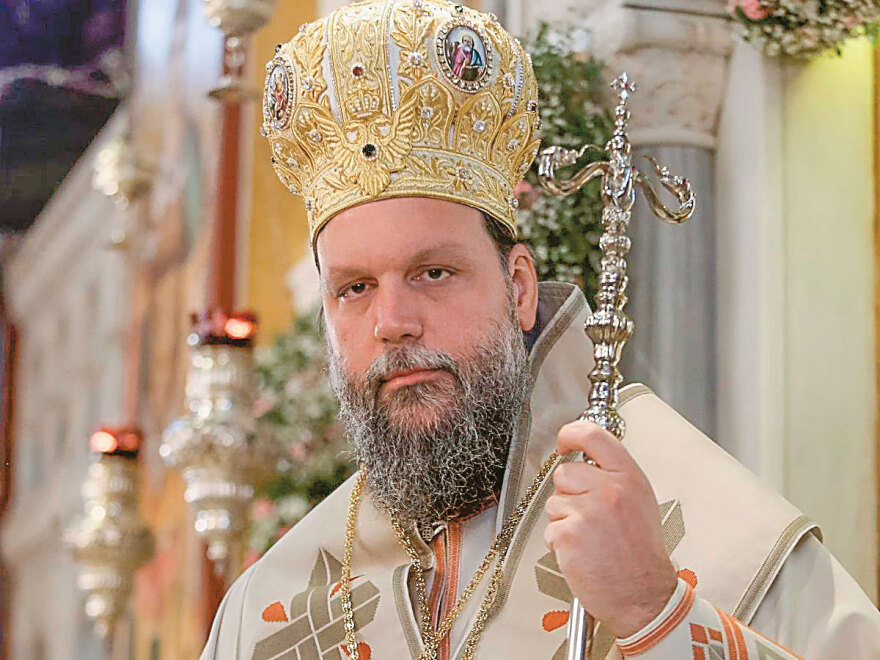
Gabriel of Nea Ionia
Metropolitan Gabriel, 48, who was elected to the Metropolis of Nea Ionia in 2014, has served with the Archbishop as the Archbishop’s first chancellor, was elected Bishop of Diavlia in 2011, and served as the chief secretary of the Holy Synod. The 47-year-old Simeon of Fthiotis, another “child” of Archbishop Ieronymos, was elected to his diocese in 2019 and the turnout for his enthronement was impressive, with coaches bringing people from West Attica and especially from Ilion where he had served. Close to the Archbishop, he has had successive roles as director of the private office of the Archbishop’s Office, general archdiocesan commissioner, protosynagogue and general director of all the institutions of the Archdiocese. Many describe him as Gabriel’s “rival”.
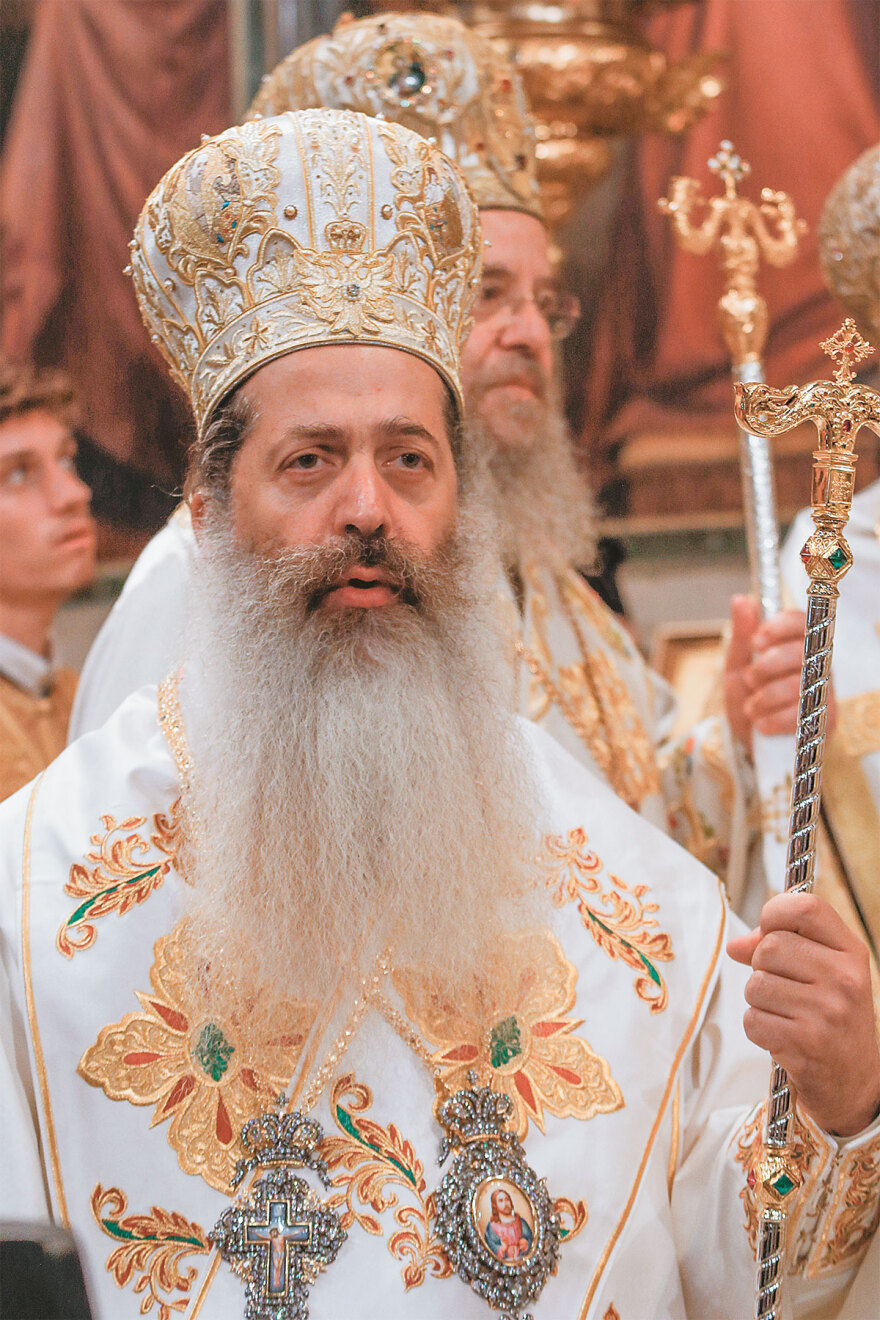
In the position of the Chief Secretary of the Holy Synod, by decision of the Archbishop, the current Metropolitan of Thessaloniki, Philotheos, who had previously been Bishop of Oreon, had served. The 47-year-old Metropolitan Philotheos, who was elected to the second most important diocese of the Church of Greece, is considered (by common admission) to be a “particularly remarkable hierarch” and “a man of strategy and efficiency.”
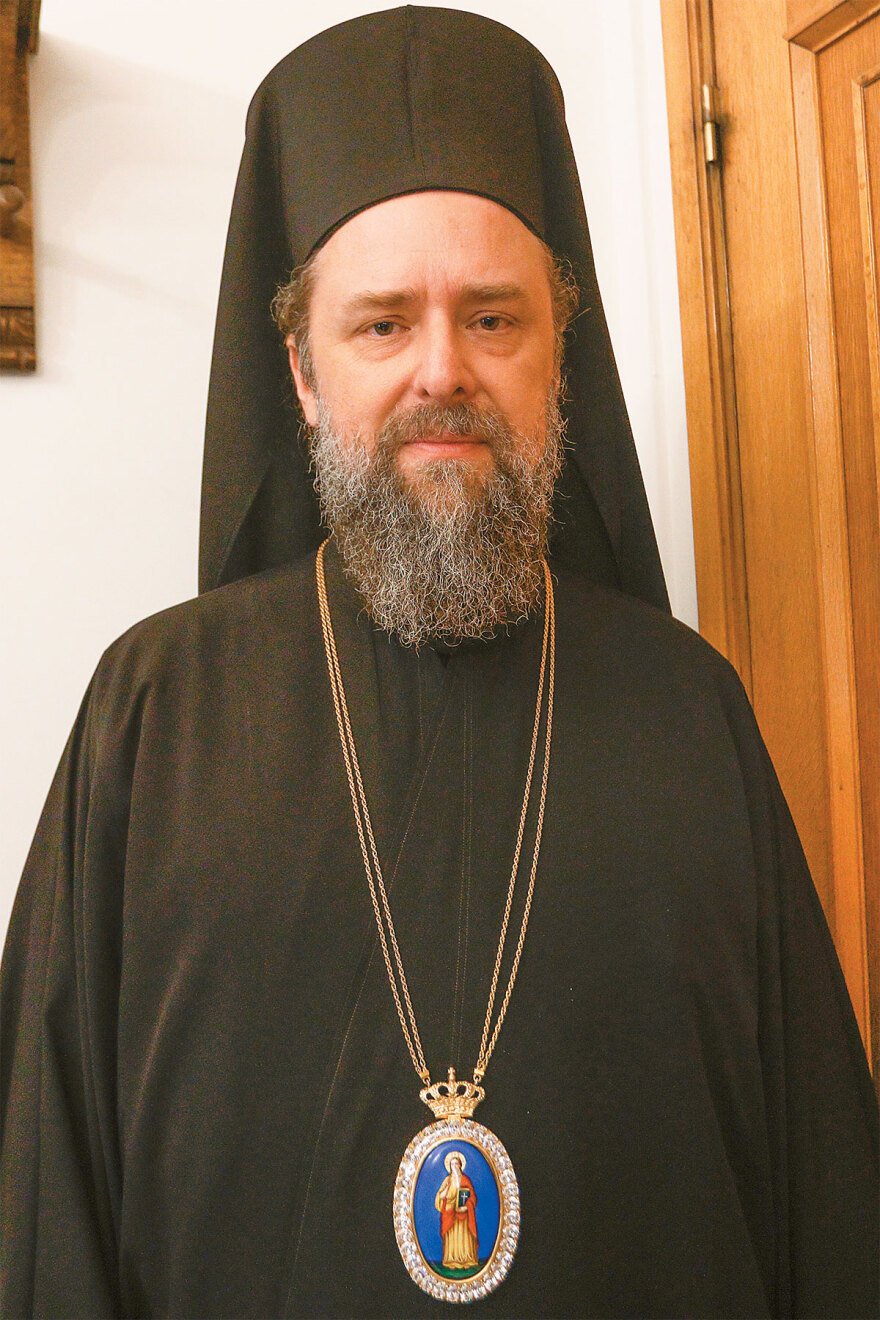
Of course, it is also appreciated by the Phanari, given that the Metropolis of Thessaloniki is included in the New Lands: it is under the spiritual jurisdiction of the Ecumenical Patriarchate, but belongs to the Church of Greece by committee (administratively) by the Patriarchal Synodal Act of 1928.
It is recalled that in the distant 2004, the failure to inform the Phanari about the movement of a prelate within the New Countries had caused one of the greatest crises in the relationship between the Church of Greece and the Ecumenical Patriarchate, with the protagonists being the late Christodoulos and the evergreen Ecumenical Patriarch Bartholomew.
The Ecumenical Throne
In the Patriarchate, however, there is no age “cut-off” for claiming the throne. “Green” Patriarch Bartholomew was elected at the age of 51 and has remained a thriving leader of the Orthodox Church for 33 years. The election of the Ecumenical Patriarch is an even more complex affair, as Turkey is involved. Time will be a decisive factor in the developments here as well, since it is taken for granted that if this process moves forward with Recep Tayyip Erdogan in charge, then the condition that candidates for the patriarchal throne have Turkish citizenship will not be enough to be selected on the list of candidates approved by the Constantinople prefect of candidates.
“It is considered more than certain that in addition to Turkish nationals, which are many prelates of the Phanari, it will be required that they be additionally born in Turkey,” sources with good knowledge of the matter claim. In such a case, the list of those eligible to be candidates gets much shorter – insiders point to Archbishop Elpidophoros of America, now 57, born in Makrychori, Constantinople, and Metropolitan Demetrios of Prigiponnese, born in 1952 in Tatayla.
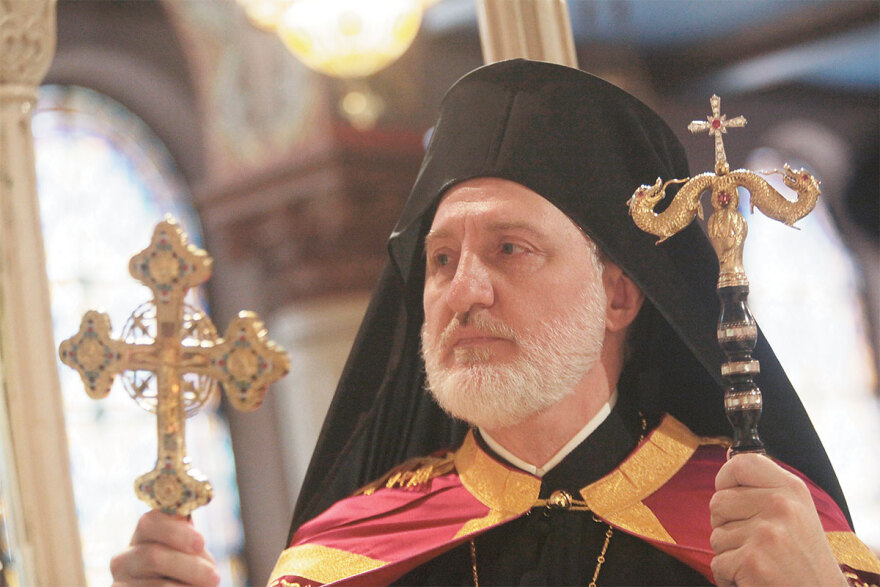
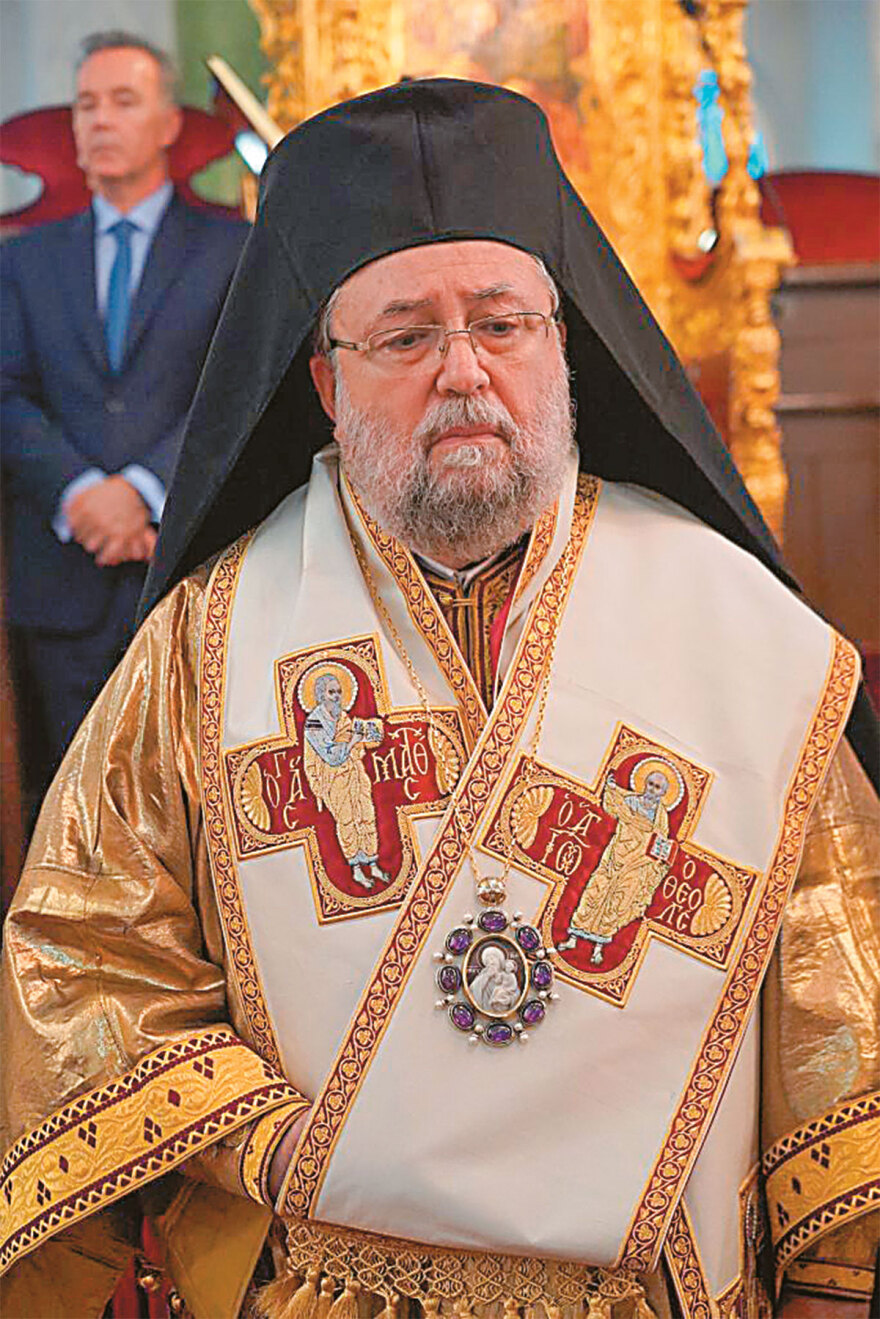
Metropolitan Demetrios of Prigiponnese
Archbishop Elpidoforos had served under Patriarch Bartholomew as Metropolitan of Prussia and subsequently Abbot of the Holy Trinity of Halki. During his tenure, very important steps were taken towards the reopening of the Theological School of Halki, which was closed by the Turkish state in 1971. From there, in 2019, he found himself in New York and at the helm of the wealthiest province of Phanari.
Almost ten days after the enthronement of Elpidophorus at the Metropolitan Church of the Holy Trinity, in Manhattan, Archbishop Makarios ascended in full Byzantine formality to the throne of the Archdiocese of Australia, in Sydney. At 52 today, the Crete-born prelate is becoming a powerful player in a succession game. He has a resume of brilliant studies that includes postgraduate degrees at Harvard, Boston University and Monash University.
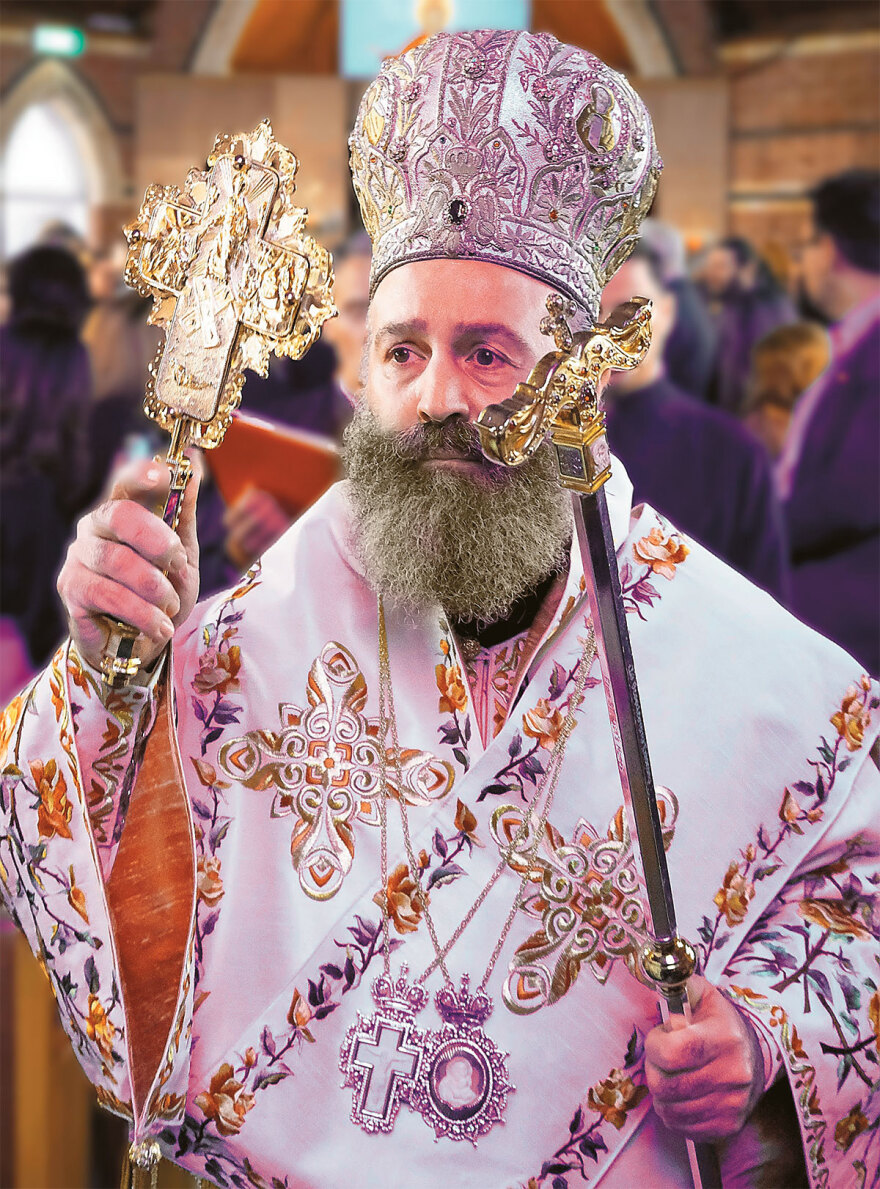
A year before his election to the Archdiocese of Australia, Mr Makarios was commissioned by Patriarch Bartholomew to study the question of the autocephaly of the Church of Ukraine. His conclusion was presented in September 2018, and at the end of that year the Church of Ukraine was recognized as autocephalous by the Ecumenical Patriarchate, a decision that provoked a storm of opposition from the Russian Church.
For observers of the game of thrones, however, the choice of former Metropolitan Emmanuel of France to fill the position of Metropolitan Elder Chalcedon, one of the Metropolises of Phanari, is not considered a coincidence, which brings him very close to Patriarch Bartholomew. Metropolitan Geron Emmanuel was born in December 1958 in Crete and for eighteen years served as head of the Metropolis of France.
He has played a central role in inter-religious dialogue and has now been granted Turkish citizenship, a condition that puts him on the possible list of successors. Old Chalcedon is held in general esteem, but there are more than a few who believe he is an excellent “consul”. The 77 metropolitans and archbishops of the Throne of Phanari – among them the leaders of the Church of Crete and the Dodecanese who are under the Patriarchate – are participating in a patriarchal election.
The Church of Albania
In the Church of Albania things are completely different. Since 1991, after many difficulties and obstacles from the Albanian government, Archbishop Anastasios, now 95 years old, has been at the helm of a Church that he literally built himself. In 1990 the regime had decided to ease measures against religion and in early 1991 the Phanari took a number of initiatives. The first was to appoint the then Bishop of Androusa Anastasios as patriarchal exarch “with a mission to go to Albania for the first contacts with the Orthodox and the authorities of the country”.
Anastasios, for a long time, worked to build a rudimentary ecclesiastical structure and in 1992 he was elected Archbishop of Tirana and all Albania in the reborn autocephalous Church of Albania. Seven metropolitans and the Archbishop make up the Synod of the Albanian Orthodox Church.
The fact that all members of the Synod are practically “children” of Archbishop Anastasiosios makes it difficult to distinguish in a succession scenario for the 95-year-old prelate. However, as insiders in ecclesiastical matters say, when the time comes, it will not be the Phanar that will decide, as it is estimated that factors such as Albania’s own foreign policy and its relations with Greece and the US will play a much bigger role.
Ask me anything
Explore related questions
